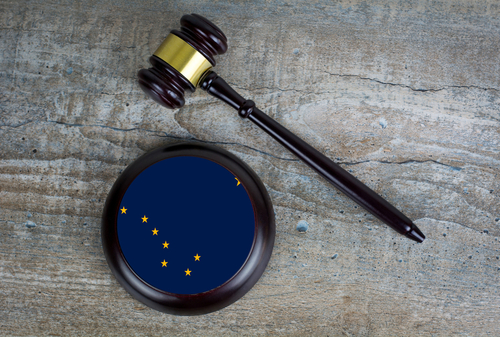Warrant required for overhead zoom-lens search that could reveal ‘intimate’ and ‘unflattering’ details, top state court says
Privacy Law
Warrant required for overhead zoom-lens search that could reveal ‘intimate’ and ‘unflattering’ details, top state court says
March 12, 2024, 1:29 pm CDT
The Alaska Constitution requires police to get a warrant if they use binoculars or cameras with zoom lenses to look into a yard from a plane, the Alaska Supreme Court has ruled. (Image from Shutterstock)
The Alaska Constitution requires police to get a warrant if they use binoculars or cameras with zoom lenses to look into a yard from a plane, the Alaska Supreme Court has ruled.
The state supreme court ruled March 9 for John William McKelvey III, who sought to suppress evidence from a search that allegedly found marijuana plants, methamphetamine, scales, a loaded AK-47 rifle and a large amount of cash at his home north of Fairbanks, Alaska.
The Alaska Beacon, the Associated Press and Alaska’s News Source have coverage, while the Legal Profession Blog has highlights from the opinion.
Alaska state troopers focused on McKelvey after they received a tip in 2012 from an informant that he was growing marijuana on his property. The officers flew over McKelvey’s property in a plane, snapped photos using a camera with a high-powered zoom lens, and obtained a search warrant after the photos revealed buckets of unidentifiable plants in a greenhouse.
McKelvey was convicted of possession of methamphetamine and possession of a gun in connection with a drug crime.
The state supreme court said the Alaska Constitution’s ban on unreasonable searches and seizures should be given a liberal interpretation because of another state constitutional provision that explicitly recognizes a right to privacy.
“The state argues that because small airplane travel is so common in Alaska and because any passenger might peer into your yard and snap a picture of you, law enforcement officials may do the same,” the Alaska Supreme Court said. “We disagree. The Alaska Constitution protects the right to be free of unreasonable searches. The fact that a random person might catch a glimpse of your yard while flying from one place to another does not make it reasonable for law enforcement officials to take to the skies and train high-powered optics on the private space right outside your home without a warrant.”
The Alaska Supreme Court said using a high-powered lens while flying overhead has the potential to reveal “intimate details,” such as “an unflattering photo of a person in a swimsuit, images of a person practicing a silly dance with their children, or expressions of religious devotion that one might not wish others to see. The mere knowledge that the government could make these kinds of detailed observations without a warrant may discourage Alaskans from using their curtilage to live their private lives.”
Two concurring justices said the Alaska Supreme Court should have gone further by requiring warrants for any plane surveillance, rather than aerial surveillance carried out with technological enhancements.






